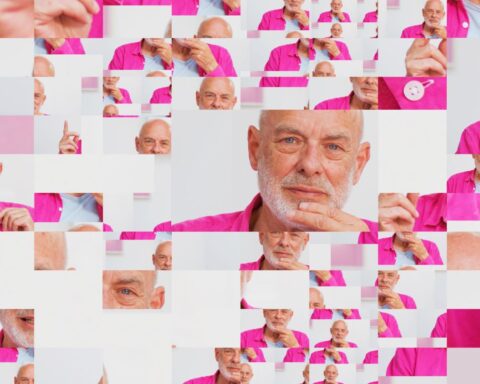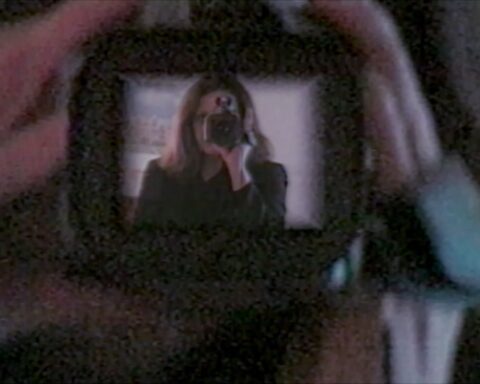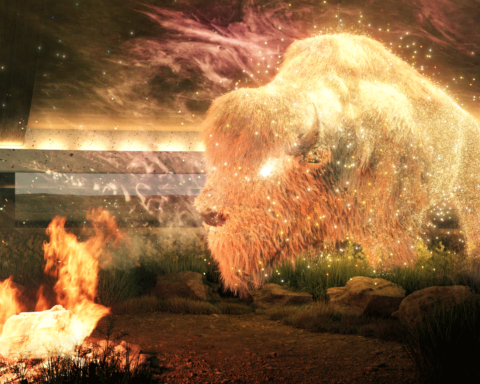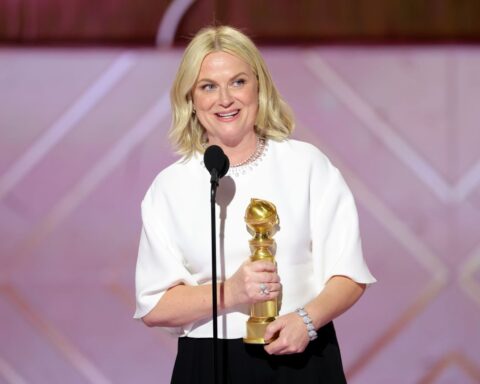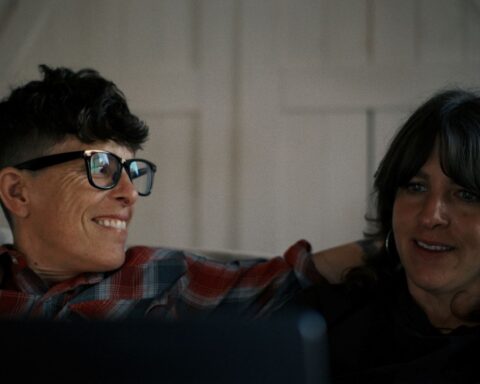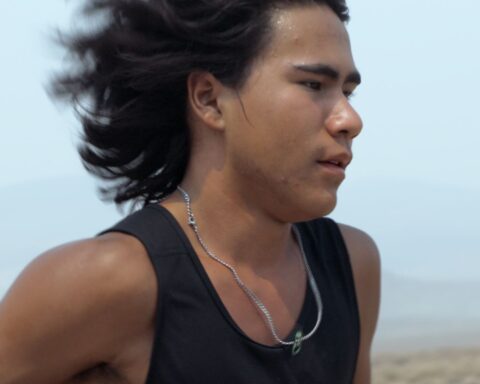Crossmedia. Docmedia. Cyberdocs. New Media, Next Media, Now Media. 360 degree programming. Multiplatform. The documentary dictionary is expanding. Broadcasting is becoming broadband casting. Factual TV is transmutating into factivism. These days, it’s essential that production companies and filmmakers adapt to this new lexicon. Or get drowned out in the digital tsunami.
In my experience, there’s one company responding to the new zeitgeist in exemplary ways. They are leading us all out of the desert of old media—in a submarine, no less. Submarine is an Amsterdam-based transmedia multi-tasking production company. They do award-winning documentaries, games, online sites and animation. They have their own showcase webchannel and DVD label. They do installations for museums, work for hire and commissions. They work in Holland, across Europe and around the globe. They synthesize new realities and wild ideas, which in the new parlance we now call memes, into digital forms. Submarine serves as a template for the new production models I think we all must follow.
Bruno Felix and Femke Wolting cofounded Submarine in the shadow of Y2K in 2000. It’s fitting that one of their earliest films was called It’s the End of TV As We Know It, a long form doc and website about the future of digital media starring Jeff Bezos of Amazon.com and James Murdoch of Newscorp. Previously, Felix was responsible for developing new media strategy and output for the Dutch public broadcaster VPRO. By forming Submarine, he says: “We wanted to move beyond the talk of the new media gurus of the 1990s, and the dogmatic divisions between theory and practice. We just wanted to do it. We were not afraid of commerce. We work with companies and artists.
“We are Dutch, but we are a European company, and we take a global perspective. We are looking at popular culture, politics and fashion, all kinds of new ideas, looking at who we all are in this international society, looking at how to tell our own stories. We are idealists trying to be part of all, and at the same time, fighting for innovative factual media.”
Femke Wolting also worked in the ’90s at VPRO Digital. When not piloting Submarine, she has also directed such cross-media documentaries as Sneakers, about the rise of the sports shoe, and Another Perfect World, a doc about online worlds as places for work, play, friendship and love. When I joined her online and asked her what had made her so enamoured with media, she replied: “I first studied journalism and then after that, cinema. I loved movies from the time when I was very young.
“After graduating in 1994, I started to work for the Rotterdam International Film Festival and initiated a new section there called Exploding Cinema. It was a program about how cinema is changing in new directions through digital technologies. I was fascinated by the fact that digital culture was changing film, and that everything seemed possible. Lots of people—scientists, designers, programmers—were inventing new kinds of storytelling, in games, on the Internet, and in computer-generated film. There were no rules established yet about how to make a successful project. The industry was also very young, so there was lots of room for young people to be revolutionary and start new companies. That was, and is, still very inspiring about digital culture.
“At the same time I still love cinema. I love making and producing films. The fact that there is an audience, and an industry with established structures for financing films and for distributing is also great, although film financing and distributing is quickly changing, too. So, I think that’s why at Submarine we started out with our love for the combination of film and digital media.”
Submarine’s projects are challenging in content, artistic vision and technology. It works with renowned directors on original documentaries and stories that expand the lexicon of non-fiction filmmaking. Douglas Gayeton’s My Second Life—A Second Life Odyssey is the first machinima documentary made in a virtual world, Second Life. Marije Meerman’s I Wanna Be Boss follows five hyper-intelligent Chinese students through their final high-pressure year at an elite high school. Bregtje van der Haak’s Satellite Queens takes us behind the scenes of Kalam Nawaem, a prime time Arab talk show for women. Alexander Oey’s My Life as a Terrorist takes Hans-Joachim Klein on the road to radicalism. Rob Smits’ Jungle Rudy is a fascinating story of the son of a Dutch banker who, at a young age, decides to leave his family and motherland for good.
Submarine also joined with the infamous Peter Greenaway on his recent Rembrandt’s J’Accuse, a masterpiece in essay form documentary, which has the illustrious director making the case for conspiracy and murder by closely examining Rembrandt’s great “Night Watch” painting. As well, Greenaway’s film trilogy The Tulse Luper Suitcases crossed genres, becoming Christiaan de Rooij’s award-winning online multiplayer community game, The Tulse Luper Journey.
Submarine’s core staff collaborates with, if you allow me to neologize, a term I’ll call createams (creative teams): a network of freelance directors, digital artists, film crews, programmers, interactive designers, writers, illustrators, co-producer partners, funders and commissioning editors, creating what Submarine calls “contemporary stories that take a critical, dynamic and often playful look at modern society.” For Wolting: “Right now people tend to think of themselves as either a filmmaker or game designer or animator. I think platforms and genres will blend into a new hybrid and that people won’t think of themselves as these specialized craftsmen (or craftswomen). The ubiquity of technology is forcing people to shed these ideas and get back to the roots of storytelling while using these tools in new and exciting combinations.”
Submarine sails under, through and over the seven seas of docmedia and metamedia, all made for the digital age. They work in diverse forms, from web comedy to online video art, from grass-roots journalism to hardcore propaganda, on frameworks for artistic game production, interactive roadtrips, autobio novels, online experiences and MiniMovies. They also produce animation for TV and the web, from animated graphic novels and hybrid flash games to rotoscoped documentaries and an interactive animated series for kids.
They are working up an impressive slate of new projects. There are films about architecture, beat ideology, and narrative features. Some examples are Michael Schaap’s film about Viagra; Floris-Jan van Luyn’s Steppe by Steppe about soul-hunting in the Mongolian steppes; Jorien van Nes’ The Human Race, the ultimate entertainment show which places the fate of a TV producer and an African folksinger in the hands of the shareholders and sponsors; Simon Pummell’s film about a 19th century German lawyer who received messages from God telling him that in order to save the world, he must change into a woman (talk about cross-genre, or is that cross gender); and there’s a film about two elderly sisters in Amsterdam’s Red Light District who ran their own brothel and set up the first informal trade union for prostitutes.
Wolting is energized about developing Energy Risk, “a documentary combined with an online alternate reality game about economic and political scenarios. Through the game and the documentary we attempt to provide a deeper insight into the complex issues surrounding global energy politics, by forcing the player to make choices that leave their mark on a national and international scale. The backstory is a scenario by Coby van der Linde, a renowned professor in climate change at the CLingendael Institute (Netherlands Institute of International Relations). She writes about the growing scarcity of oil between 2008 and 2040. We follow this scenario. The basic premise of the game is that there is never a clear-cut route to success. Any choice you make will have positive and negative effects, both short-term and long-term. It’s exciting to explore this subject through both a linear film and a multiplayer game where players can investigate these scenarios themselves.
“Another project I’m very excited about is a documentary about pirates in Somalia. For this film we are using a hybrid of animation and live action to investigate the reasons for the explosion in piracy over the last few years. Many Somalian fishermen have lost their incomes over the last decades. Somalis often say that Western ships have emptied out their fishing region and that they are just taking back what belongs to them. The film follows the lives of two Somalian pirates. For this film, I’m excited about the possibilities that the hybrid of animation and live action gives to tell a story that is very hard to film in real life.
“We have been filming an investigative documentary Rainmakers over the past year. It’s about the decline of China’s environment, told from the perspective of four civil activists who refuse to accept the ongoing ecological destruction of their homeland. I think the director Floris-jan van Luyn has done an amazing job to gain the trust of these activists and to follow them in their work.”
Submarine also has its own dedicated net-based SubmarineChannel, which is both a distribution and a production platform for filmmakers and interactive artists who are exploring the potential of the web. As a showcase and a test-bed for digital culture, it’s a place for digital artists to create new, interactive, cross-media formats that use the qualities of the Internet that can also migrate to other media, like television, mobile devices and film.
So the future of the documentary dictionary looks promising. Moving old words—and subjects—into new work, formerly submerging docmakers can, with a few new added skill-sets, emerge again. For Wolting: “Five years from now will come much faster than I suspect, but I feel we can look at what we are doing now and project out to what we will be doing. Submarine is really an experiment that has been challenging, interesting and rewarding in ways we never imagined. As a complete crossmedia production company, we look at all platforms, but in the end, we just try to tell good stories. Until now, people have specialized in one platform or genre. We are committed to storytelling as a cross-platform medium. Whatever new and interesting ways we can tell a story, in emotionally engaging ways, we will do it. It is easy to get caught up in technology, but technology comes and goes, [while] good storytelling is much more enduring.”




